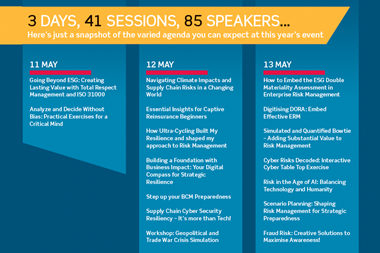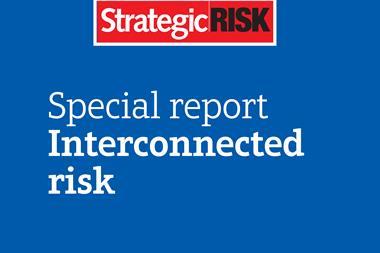Survey says risk management is now seen as a key contributor to a company’s source of competitive advantage
Risk management is now seen as a key contributor to a company’s source of competitive advantage with companies putting risk managers under increasing pressure to show measurable returns on investment in this area, according to a survey published by ACE European Group (ACE) yesterday.
The majority (97%) of senior executives and risk professionals surveyed for the latest global risk briefing report, conducted by the Economist Intelligence Unit (EIU) and sponsored by ACE, said that good risk management is an important source of competitive advantage. There is a growing consensus that risk management is now expected to be more than just a tool to protect a company from losses.
Most respondents thought their risk management operations enhanced shareholder value and, almost half of the 218 executives interviewed agreed that the most important benefits of risk management were protecting and enhancing the business’s reputation.
The research also showed that companies worldwide are planning to increase their investment in most areas of risk management over the next three years including improving the quality and reporting of data, training and strengthening risk assessment processes.
Commenting on the results of the global risk briefing, Andrew Kendrick, ACE European group chairman and CEO said: "Risk management has come of age. But with this maturity comes responsibilities. More than 60% of respondents to the research said that over the last three years the commitment of their company’s board to risk management issues had increased. But, as a result, there is a greater expectation that the operation will make a measurable return on the investment it receives."
Whilst companies say they are confident in dealing well with more traditional areas of risk such as financing, market volatility and bad debts, the research showed a lack of confidence in effectively assessing and managing emerging risks and those outside the control of the business.
This included such areas as IT, climate change and human capital risks.
Regarding tackling these areas, Andrew Kendrick said: “With dangers lurking in areas of non-traditional risk, there is great potential for insurers, risk managers and their brokers to work together to develop effective risk transfer solutions.
"The impact of cyber and environmental related liabilities on businesses are just two examples of where both groups can, and are, working mutually to build relevant policy covers.”
















